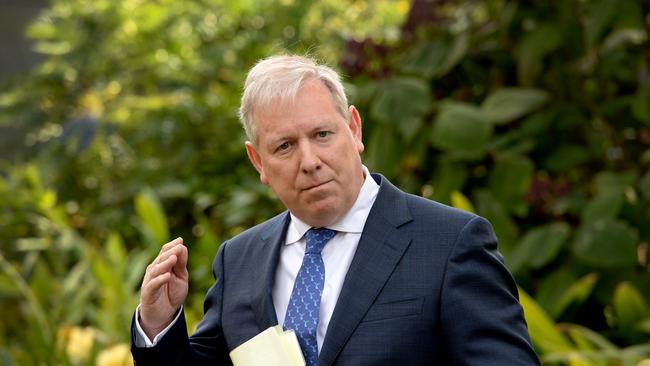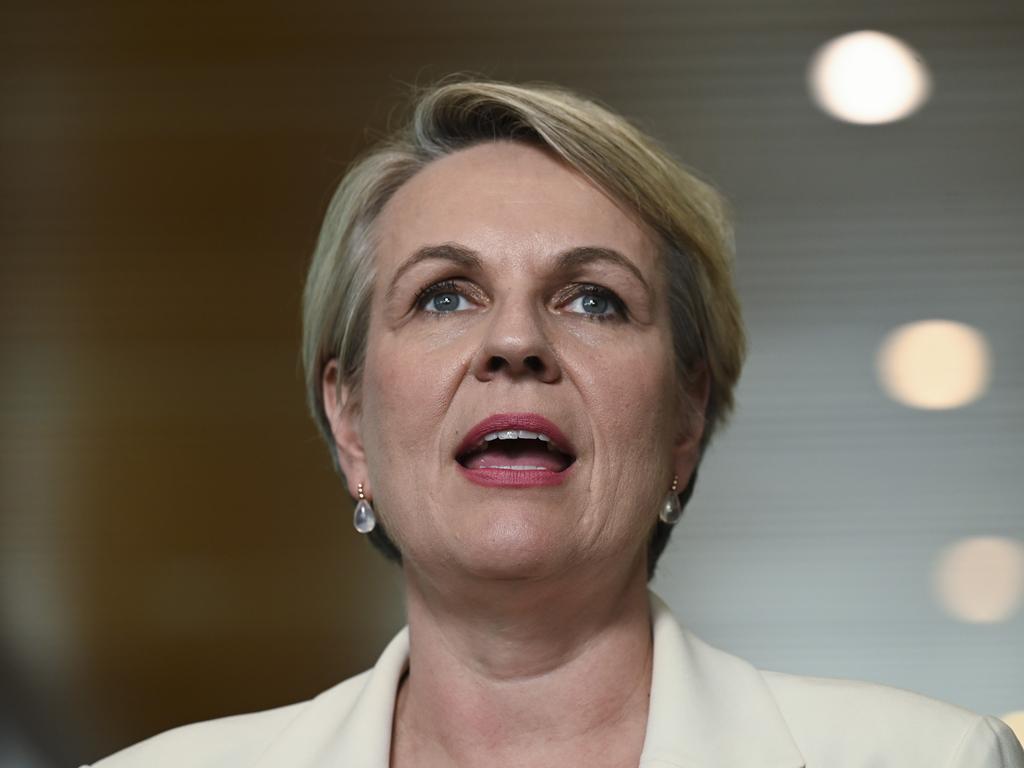Energy costs among pressures prompting Victorian business exodus
Victorian Labor’s gas policy is driving business from the state, and there are fears its unintended consequences could be felt for years.

The increased cost of doing business in Victoria is leading to an exodus, with the state the only jurisdiction in the nation to experience a net loss of businesses last financial year, as industry figures warn unintended consequences of the Allan government’s gas policy could make the problem even worse in years to come.
Australian Bureau of Statistics figures for 2022-23 show a net decrease of 7606 businesses in Victoria, with the top three worst-affected local government areas including Brimbank and Maribyrnong in Labor’s western suburban heartland, as well as Frankston, which is currently the focus of the federal by-election for the seat of Dunkley.
Key concerns for business include soaring interest rates, inflation and rising state taxes, but AiGroup Victorian director Tim Piper said energy costs, particularly around gas, were also an ongoing issue.
“Some (companies) are able to stay here, (but) it is the continuing reinvestment that is the real problem,” Mr Piper said.
“However, I know some big companies that are saying this is beyond the pale, they’re not going to be able to pay the level of gas prices especially, and they are having to reconsider their positions in Australia and Victoria.”

AiGroup climate change and energy director Tennant Reed said energy prices were generally having a lower impact on businesses that they did in 2022, but he warned that the long-term move away from gas being encouraged by the Allan government was likely to have consequences for those who remained connected to the network, despite industry being exempted from the government’s gas substitution road map.
“Up until recently, the logic of gas networks was the more people who are connected, the cheaper the network is to run per user. Now we’re in this much messier world where the Victorian government reckons that for households, being off the gas network and fully electrified will ultimately be the best solution,” Mr Reed said.
“Let’s forget about whether they’re right or not – just assume that’s what happens – certainly all new households go electric and existing households progressively electrify, then that does produce a big question about what happens to the value of the existing gas network.
“That’s a horrible question, and all the possible answers to it are horrible for somebody.”
Mr Reed said gas companies, gas customers, electricity users paying exit fees, taxpayers, or a combination of all four were likely to have to wear the cost.
One key employer which has cited energy costs as a main reason for cutting Victorian jobs – and ironically moving to a country where energy is cheaper but environmental safeguards are much less stringent – is toilet paper manufacturer Sorbent.
Parent company Asian Pulp & Paper announced in August that it was halving its production workforce at the Box Hill manufacturing facility in Melbourne’s east, shifting some manufacturing of their brands offshore and moving equipment to Indonesia. At the time, the company said its decision was “necessitated by the challenging macro-economic environment, including unsustainable energy costs, among others.”

The move took place just months after Sorbent had received a $271,158 grant through the Victorian government’s Business Recovery Energy Efficiency Fund for initiatives aimed at monitoring and reducing electricity usage.
Victorian opposition energy spokesman David Davis said there was no doubt businesses were leaving the state because of “huge regulatory and cost pressures, including the highest taxes in the country, and the nation’s fastest-rising energy costs”.
“Smaller Victorian businesses face the fastest-growing energy costs in the country, with electricity bills on average 8 per cent higher across Australia for businesses consuming 20,000kWh per annum compared to a year ago, yet 17 per cent higher in Victoria, and gas bills on average 12 per cent higher across Australia for businesses consuming 100GJ compared to a year ago, yet 31 per cent higher in Victoria,” Mr Davis said.
“Victorian businesses are paying more for energy than they ever have before, and they know that Labor has botched the transition to renewables.”

Brimbank lost 1332, or 6.7 per cent of its businesses in 2022-23, compared with 662, or 6.8 per cent, in Maribyrnong, and 528, or 4.4 per cent, in Frankston.
Key industries in Brimbank and Maribyrnong include transport, postal and warehousing, while construction was the primary industry for business failure in Frankston.
A spokeswoman for Victorian Energy Minister Lily D’Ambrosio said the government had provided “unprecedented support” to businesses throughout the pandemic.
“Because of our record investment in renewables Victoria has the lowest wholesale electricity prices, meaning Victorians, including businesses, are better protected from price increases,” Ms D’Ambrosio said.
More Coverage









To join the conversation, please log in. Don't have an account? Register
Join the conversation, you are commenting as Logout